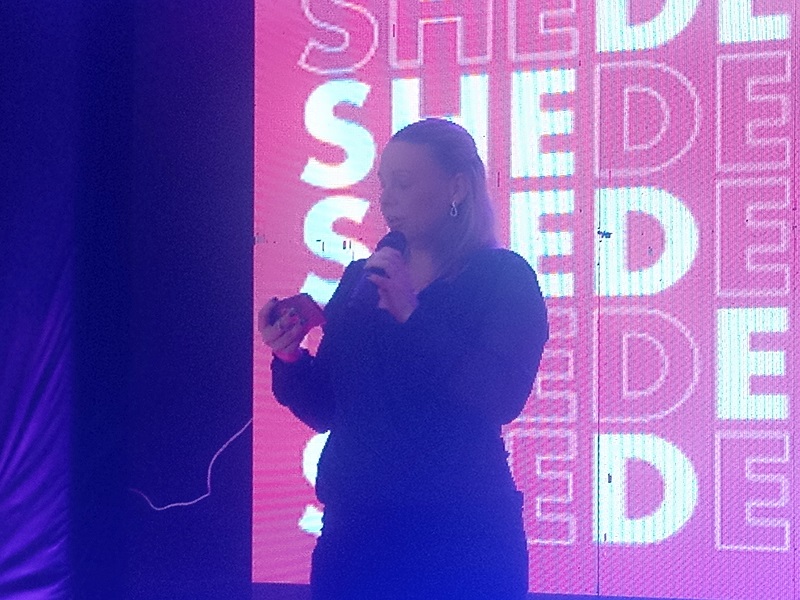
KAMPALA – Swedish Embassy in Uganda has called for the equipment of the young population especially girls with digital skills required if they are to fully participate in society.
The call was made by Ms. Annelie Areskär, the Sexual and Reproductive Health and Rights (SRHR) and gender equality officer at the Embassy of Sweden while attending She Decides Uganda Open House Post International Day of the Girl Event on Tuesday at MoTIV Uganda, Kampala.
Areskar says that digital skills are crucial for ensuring girls’ and young women’s safety both online and offline, increasing their ability to participate and engage more actively in communities, as well as politics.
Under the theme, “Digital Generation, Our Generation; Positioning Adolescent Girls and Young Women in Uganda to Reap from the Benefits of the Digital Revolution”, Areskar advised that digital skills enable young women to enter into the labour market.
“ICT has the potential to alleviate some of the barriers faced by girls & young women. This includes illiteracy, poverty, time scarcity, hindrances of mobility, and cultural and religious taboos. Equipping girls and young women with digital skills open up countless opportunities for increased agency and choice. Websites and mobile applications on health and legal rights, for example, can help girls & women make informed decisions to safeguard and care for themselves and their families,” she said.
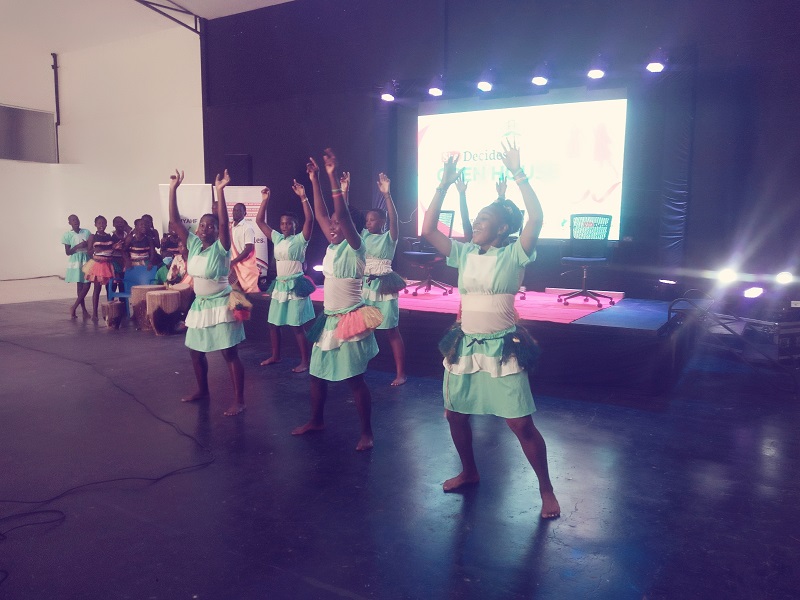
She revealed that online social networks and digital communications allow girls and women to disseminate information and share knowledge beyond their immediate community.
With these, she says, “The world becomes smaller and our social networks grow bigger.”
“Mobile learning opportunities, from literacy apps to massive open online courses, including comprehensive sexuality education, can open up new educational pathways and with that opportunities, especially for out-of-school girls.”
However, during the last years, concerns about GBV online have gained wide recognition as a growing and alarming phenomenon. It is used to attack, oppress and silence women and girls and lesbian, gay, bisexual, transgender and intersex (LGBTI) persons in private and public spaces.
Digital platforms are on one hand new arenas on which girls and women experience violence, and on the other, they may also change the ways in which they respond to violence.
Areskar says that online gender-based violence needs to be tackled and girls & young women need access to tools for digital security to protect themselves.
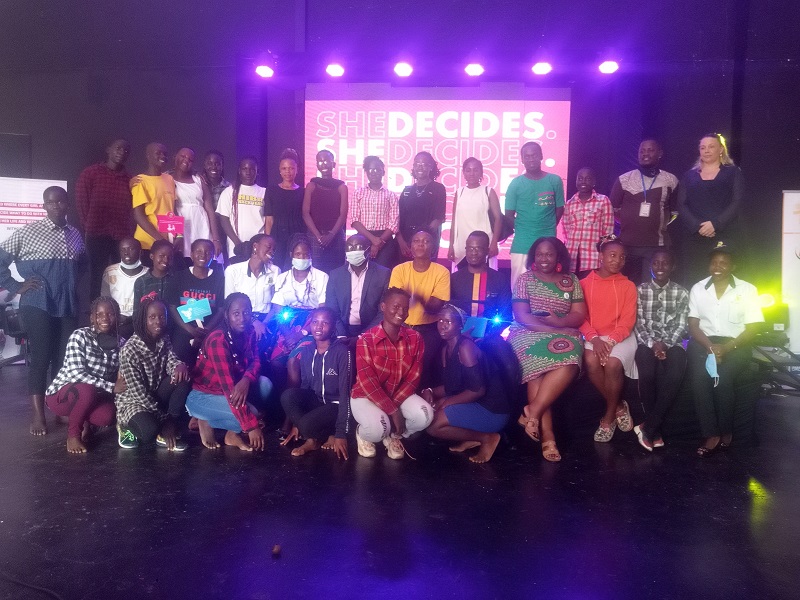
Uganda has been on the verge of gender-based violence including concerns of teenage pregnancies prior to the March 2020 Covid-19 pandemic outbreak.
The recent statistics indicate that over 17,000 pregnancies have been posted across the country during the Covid-19 pandemic.
Areskar says that the pandemic, the lockdowns and the closure of schools have been the root cause of the increasing number of unwanted pregnancies, teenage pregnancies, unsafe abortions and limitations in access to Sexual & Reproductive Health & Rights services and information for adolescent & youth.
“Early-childhood marriage is on the rise as poverty caused by the pandemic has forced families to marry off their daughters to help alleviate financial burdens,” she said.
She re-echoed Sweden’s commitment to continue to be a frontrunner when it comes to gender equality & SRHR globally and in Uganda.
“We will continue to work in partnership with the Government of Uganda, civil society, other development partners and communities. Together, we share the responsibility to deliver for the girls here today and for the future generations of Ugandan women and girls to come.”
Dr. Asaba Richard from Makerere University School of Women and Gender, who attended virtually revealed that women and girls dominate the majority of the population in Uganda but says that this exposes them to violence.
Like other speakers, Asaba called on different stakeholders to make technology accessible and affordable, saying that it is crucial to advance girls’ health and education.
“Empowerment of girls will impact positively to the Sustainable Development of this country,” he said.
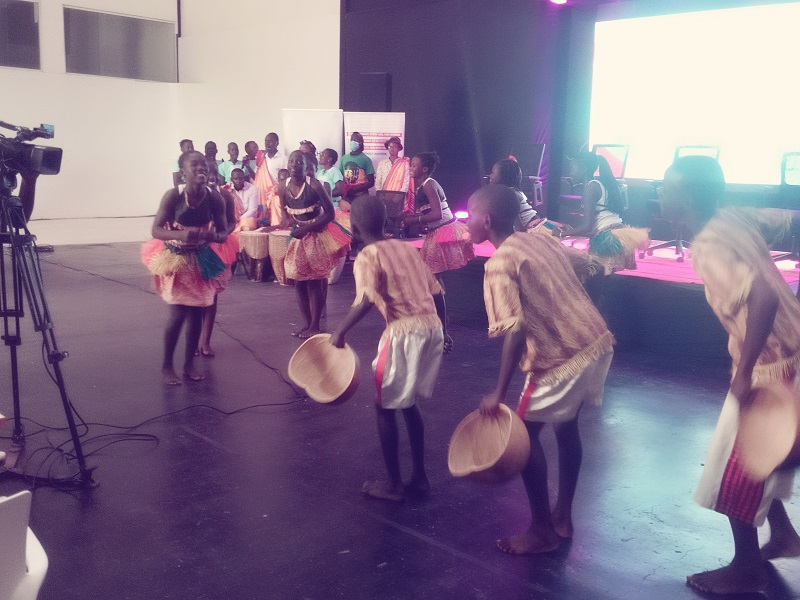
According to him, the policy framework in Uganda protects girls and women and among others, provides for access to technology.
He revealed that data show that many girls in Uganda have had their first sexual intercourse due to cohesion and violence.
“The figures indicate that one in four girls aged 13 to 17 years who have ever had sex say their sexual intercourse was unwanted. They were either forced, pressured, or threatened,” he said.
He, however, blamed community gender rules and practices which he says have contributed much to these challenges.
“All these are due to a number of gender rules and practices in many of our societies like barring girls from sex education. You cannot talk about it; it is culturally inappropriate.”
Violence in schools, Dr. Asaba says that most of them, especially physical violence against girls, according to a 2015 study, 90% were committed by teachers.
Other panelists including Carol Owashaba from Western Uganda, Wandera Herbert from Bunyoro, Nixon from Northern, Dianah of Power to Youth Uganda among others, also decried increased teenage pregnancies, limited access to sex information.
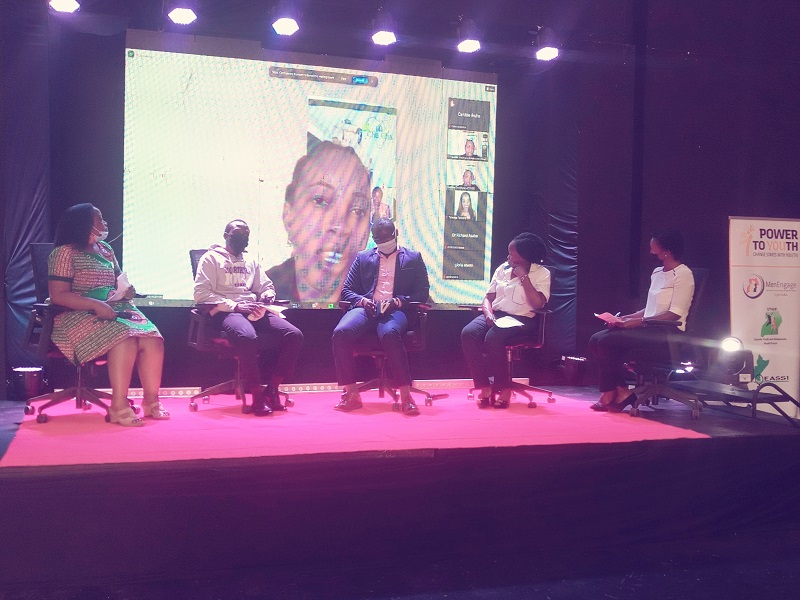
They say that in their different area, accessibility to technology is still a big challenge especially to girls as most of them can’t afford either a smartphone, laptop and for those who can afford them, the maintenance is high “for instance the just introduced 12% tax on internet.”
They say that while the pandemic has accelerated the use of digital platforms for learning, earning, and connecting, many young girls have been left behind.
They say that girls are also less likely than boys to use and own devices, and gain access to tech-related skills and jobs.
According to them, girls living in rural settings with limited access to electricity also have no access to internet connectivity.







